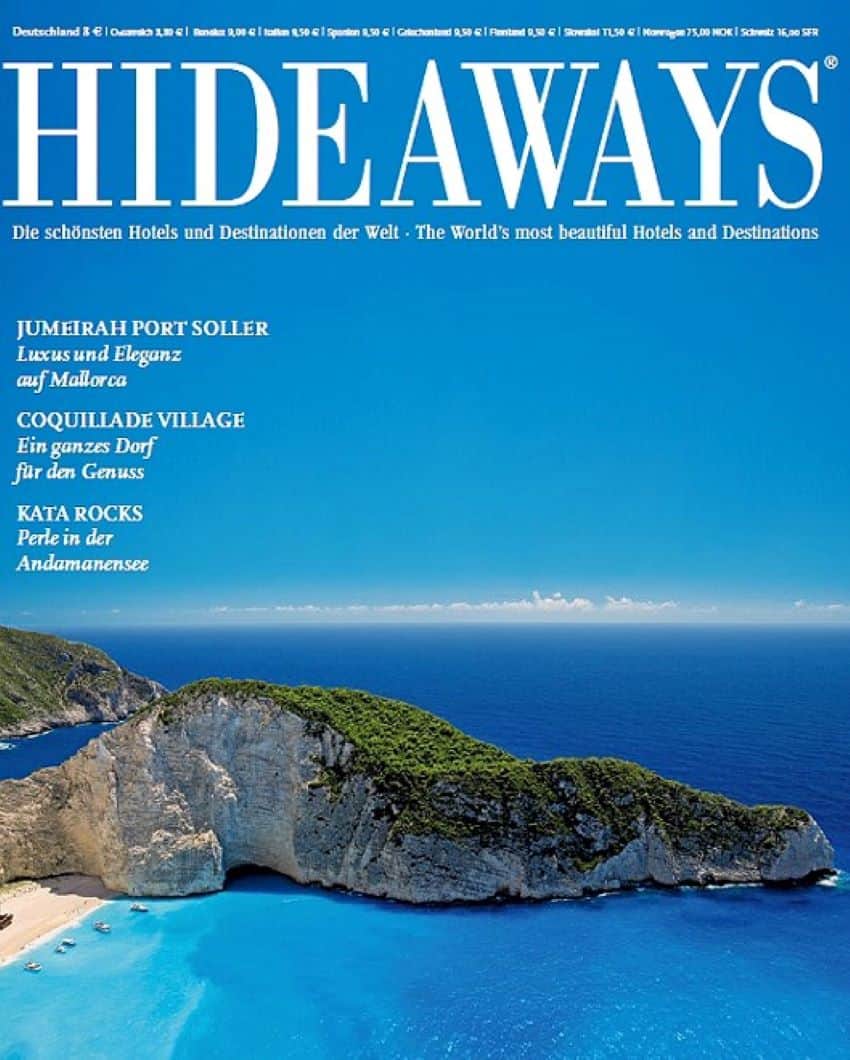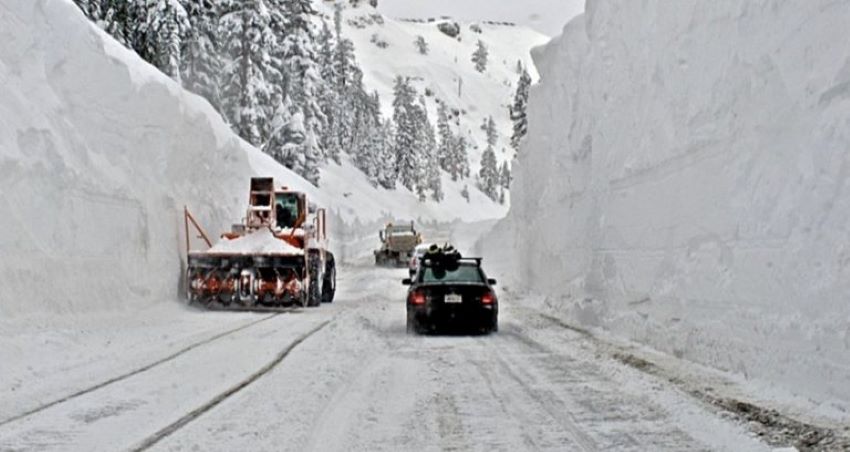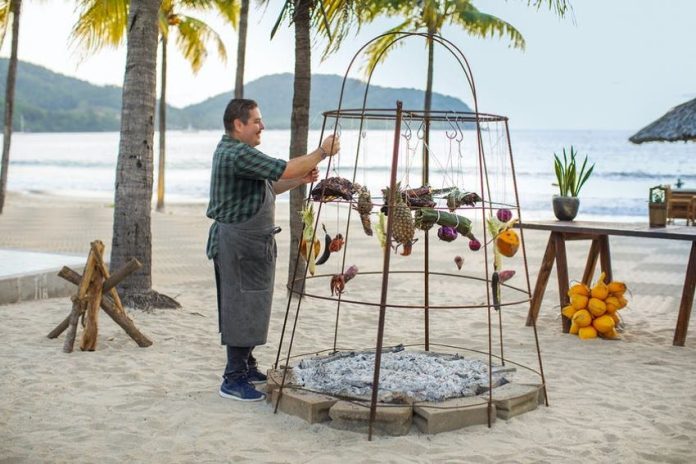Growing up in Southern California, I had excellent access to the wilds of Baja California. Access to the mainland of Mexico, however, was costly and time-consuming.
The dreaded mainland was also constantly patrolled by corrupt law enforcement agencies endowed with various levels of turpitude, which was reflected in their dealings with American kids. There were numerous horror stories about hapless travelers incarcerated in rat-infested penal institutions in Mexico, evocative of the darkest tomes of Cormac McCarthy. And when I was able to hop in my truck after lunch and enjoy a cold beer in Ensenada before sundown, why bother with the mainland?
The Baja was relatively undeveloped and unpoliced, and consequently, a visit there carried few of the risks of traveling the mainland. I enjoyed time there frequently. Later, however, when I moved to the mountains of northern California, Mexico became part of my past.
So, my first real experience with mainland Mexico was not until February of 1979.
It was on a Sunday morning in January when my wife pointed out an advertisement in the latest edition of the travel magazine Hideaways. It showed a breathtakingly beautiful sandy beach, a few palms gently waving and a cute little cottage. It was apparently in a place called Zihuatanejo.

She knew I was especially vulnerable to any possibility of escape from what was turning out to be a 20-foot winter. I normally enjoy a nice snowy season. We both savored skiing, and my snow removal business allowed us some leisure time. However, our normal seasonal contentment had lost its relish as the 1978–1979 winter relentlessly dumped foot after foot of snow.
The gorgeous beach picture lured me with an indescribable dislocation that transported me into dreamland while I enjoyed an evening sauna. I relaxed in the 165-degree heat and listened to the constant whump, whump of the fir trees losing their load of snow onto the roof above. In my quixotic state, I could only conjure up sandy beaches and the possibility of experiencing temperatures significantly above freezing.
The next day, while swilling my morning caffeine, I blurted out to my wife, “Let’s can the rest of the month here and go to Z … wa … tin … a … ho…, or whatever it is called.”
The place was many miles below the Tropic of Cancer, and I knew it had to be warm.
Of course, she reminded me that we had over a mile of road which needed to be plowed regularly if we ever wanted to return to our home before April.
“And what about all the people that need to be plowed out while we are away?” she asked.
She then apologized, saying, “I should have never taunted you with that photo in Hideaways.”
I felt my mental picture of sandy beaches and swaying palms slowly dimming. Wait! I suddenly had a brilliant revelation.
I got on the phone and called Scotty, a longtime friend who lived in Berkeley, and asked if he would like a month-long ski vacation. I explained our need to get away as well as our need to find someone who was willing to plow snow at all hours, day or night.
He was actually excited at the prospect of plowing snow during a raging blizzard and immediately accepted the offer. Scotty has always been a true adventurer, and the thought of meeting nature’s fury with an eight-foot sheet of articulating steel, backed by several-hundred horsepower, was the opportunity of a lifetime.
Scotty arrived three days before our departure to the Mexican tropics and received what I then called a “crash course” in snowplowing; later, I would regret my use of the term.
Just to get from our house to a county-plowed road required driving a mile and a quarter of single-lane dirt road. That road had two narrow bridges over running water and 500 feet of cutbank, with white water below and loose rocks above. I told Scotty the cutbank can be a bit tricky because the steep hill likes to slough debris and that he should be careful and proceed with caution. He made copious notes while I showed him my plowing route’s various parking lots and driveways.

Scotty’s intelligence, combined with an abundance of enthusiasm, eased most of my initial fears, but I knew that sometime during the next month, he would have one or more adrenaline-laced moments while pushing around Mother Nature.
Four days later, as we stepped off the plane at 10:30 p.m., we were stunned by the humid warmth of Zihuatanejo. The next several days were pure bliss, and I had nary a thought of snow until the end of the first week. That Sunday, I walked to the closest public phone and stood in line for no longer than 30 minutes to make my weekly call to Scotty.
He said the weather had been clear and cold and that the skiing was fantastic. The plow truck hadn’t even been started since we’d left.
The next Sunday, I called but had to leave a message on the machine. A couple of hours later, I called again, but still no Scotty. After four more unsuccessful attempts during the day and one again at nine in the evening, my alarm bells were all going off.
I called a friend who lived within a couple of miles and asked him to drive down and see if our house was still standing. I learned that 40 inches of snow had fallen and that it was still coming down.
None of the county roads had been plowed since the morning before. It would take days to dig out of the mess. He volunteered to borrow a friend’s snowmobile and try to locate our missing housesitter and told me to call him again in a couple of hours.
When I called back, he started the conversation with, “You won’t believe what happened.”
As my friend described the scene at the cutbank section of our road, I knew Scotty had pushed Mother Nature a bit too far. With a week’s worth of sunny days, a crust had formed on the snow that covered the steep hillside above the road. The 40 inches of fresh snow was sitting at rest — at rest until a snowplow came along and began to remove the bottommost portion of the angled snowfield. As the supporting snow was cut away, the entire hillside of snow above the road had instantaneously collapsed, burying both the plow truck and Scotty.
In our next telephone discussion, Scotty told me he had been about halfway across the cutbank when he looked up through an open window and saw a big slab of snow dislodge itself. He described the slab coming down with the speed of a free fall. The next moment, he said, he was up to his neck in snow as the cab of the truck completely filled.
When avalanches stop, the last of their energy is expended by compacting the snow to the consistency of wet concrete. In this case, the truck took up most of the energy as the snow pushed it to the lip of the adjacent drop-off. Scotty explained that he had been able to claw himself out of the truck with 40 minutes of diligent work.
Of course, I took the story as a confirmation that my decision to be in the tropics, while Scotty was in the frozen north, had been truly prescient. Scotty was proud of his adventurous escape, and my wife and I relaxed even more, no longer waiting for the snowy axe to fall.
I am tempted to call for another cerveza or margarita every time I relive the memory.
The writer describes himself as a very middle-aged man who lives full-time in Mazatlán with a captured tourist woman and the ghost of a half-wild dog. He can be reached at buscardero@yahoo.com.
